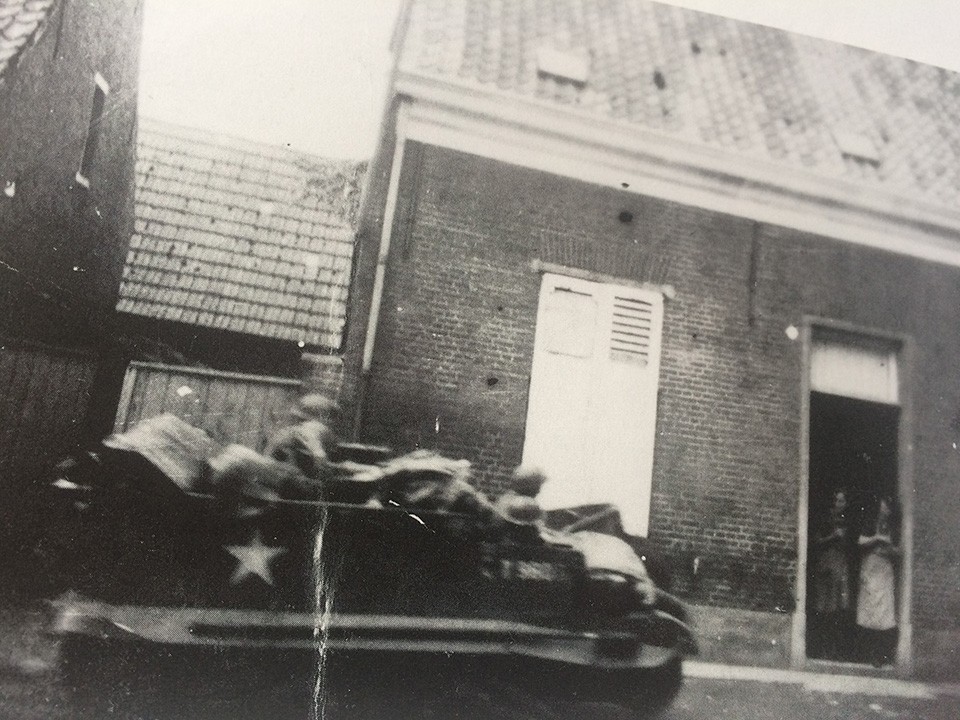The inhabitants of Sint-Lenaarts lived through fearful times, some took shelter in the cellars of the girls' school. Above them, hand-to-hand combat raged. Suddenly the cellar door flew open. 'We're Canadians, you're free!' a soldier shouted. The village centre of Sint-Lenaarts was liberated on 29 September 1944, that of Brecht two days later.
A painter in the sewer
On the 1 October 1944, Canadian Captain Joseph Engler drove his jeep through Sint-Lenaarts. On board was Captain George Pepper, a war artist who wanted to make a sketch of Bridge 9 in Sint-Lenaarts. By mistake, they drove into Kloosterstraat, straight towards the German lines.
They were taken under fire. Engler was killed, Pepper managed to hide in a culvert. For days he waited in the no man's land. At first he survived on some grains, an apple and dewdrops. Later, he was able to catch a chicken with his badger. The raw meat gave him some energy again. After ten days, with the help of a British patrol, he was able to escape to his own lines. Starving, but unharmed.
A heavy toll
The battle on the territory of Brecht and Sint-Lenaarts eventually lasted three weeks. Some 140 Allied soldiers and 170 Germans died. The war claimed the lives of more than 110 citizens of Brecht and boroughs.
Tourist information
Cycling routes
Tourism Province of Antwerp has created liberation routes along the cycle junction network. Cycle and walk past the places where it all happened, for example monuments, military cemeteries and crash sites. For the liberation routes, go to fietsroutes.provincieantwerpen.be
